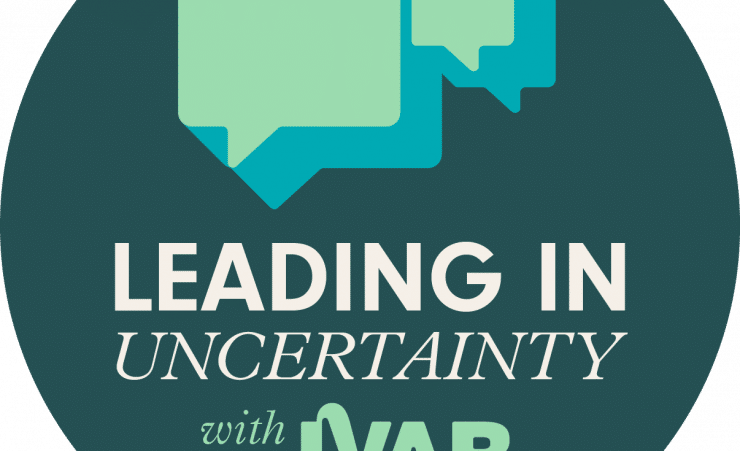
‘Turn up imperfectly’: How trustees are Leading in Uncertainty
Introduction
During March 2022, we facilitated online peer support sessions for 22 Trustees from the Getting on Board network. Trustees from underrepresented groups shared their experiences of boards: from how they found the process of recruitment to what it is like to be a trustee.
In this blog, we summarise a few front-of-mind concerns trustees expressed across the sessions and include an anonymised reflection from one of the attendees. While conversations covered many areas of the trustee role and the present challenges for underrepresented groups, this blog centres on the importance of peer support for trustees. In the autumn, Getting on Board will be releasing a guide on diversifying boards which will further explore the context, experiences, and suggestions from these sessions.
This forms part of IVAR’s Leading in Uncertainty programme, where we facilitate peer support sessions for voluntary sector leaders and publish insights and experiences. Our aim is to offer support and encouragement to other leaders, and to inform funder practice.
Boards aren’t immune to sector pressures: They will need support, too
As the pandemic stretches into its third year, trustees are feeling the same pressures as the charity leaders they support – and exhaustion is setting in. A significant part of the role trustees play is supporting the Chief Executives who deal with the wellbeing challenges of the whole organisation. However, trustees themselves also need support in order to work effectively:
It can be a slightly lonely role being a trustee as you are not necessarily there all the time and that can feel isolating.
Trustees are seen as rescuers or savers rather than people that have their own needs, the same way an employee would have.
Driving change is a collective effort
Trustees recognise that as new board members they can challenge and evolve the culture when they join, bringing new views, values and behaviours that are ‘representative of the community that we seek to serve’. However, trustees felt the burden of being a ‘changemaker’ shouldn’t rest solely with them. Embedding equity, diversity and inclusion, in particular, is regarded as something that needs to be taken on by the board and senior leadership as a collective effort, not just left to individuals from underrepresented backgrounds.
Trustees believed that creating a safe and welcoming environment helps to bring in these new ideas that develop thinking, especially as it can be difficult to have the confidence to speak up when newly-in post or if individuals are the only person from an underrepresented group. Trustees, specifically new ones, should be enabled to voice their opinions. The consensus in the sessions was that this is the role of a trustee: to listen, question and challenge.
I am on the Board for that reason. They didn’t bring me on the Board to maintain a status quo … but it’s hard to get people to realise that’s a positive thing.
In the experiences of trustees, finding allies on a board can support them to do this.
Powering forward in post: Facilitating a successful first term and beyond
‘Turning up imperfectly’ as a trustee is better than holding back, and there was encouragement amongst trustees to avoid feeling like they needed to be ‘everything to everyone’.
As a new trustee, it can be difficult to know what is expected of you or where to reach out for information regarding the standard of work to aim for. It was emphasised that boards needed to provide opportunities and a culture that allows for vulnerable, open and honest dialogue to happen, particularly around barriers to engaging in board conversations. The foundation of this, as suggested, may come from habitually building relationships within the board through informal conversations and one-to-ones that build camaraderie.
Additionally, trustees from underrepresented groups shared that they’ve had instances where their recruitment felt like a tick-box exercise. For them, it’s important that boards are clear on the skills and experience they are recruiting for and put careful thought into how they are going to retain trustee talent:
Where I have seen or felt that I am a token [is] where the role hasn’t been defined properly.
Now you have it, what are you going to do? How are you going to keep the diversity?
Boards can further support trustees by helping them find networks outside their own. Hearing and learning from perspectives outside of your organisation can be useful when it comes to understanding how to ‘show up’ as a trustee and provide the best possible support to the organisation and team you are working with.
Leading in Uncertainty as a young trustee
These words have been shared with us by an attendee of one of the sessions to illustrate the importance of peer connections for trustees.



